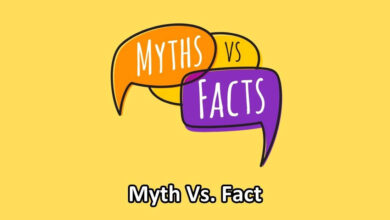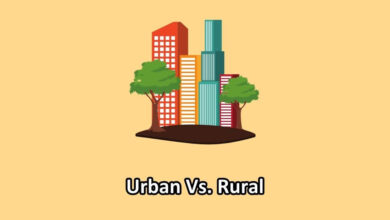Jail Vs Prison: Unmasking the Truth Behind the Labels
Are you curious about the murky world behind bars? Do you often find yourself wondering about the differences between jail and prison, and how individuals transition from one to the other? Well, buckle up because we’re about to take you on a thrilling journey! In this captivating blog post, we will delve deep into the realm of detention and incarceration.
From unraveling their contrasting characteristics to exploring the intricate processes that lead individuals from behind steel gates to hardened walls, get ready for an eye-opening exploration into the fascinating world of jail vs. prison.
Jail Vs Prison (Comparison Table)
| Jail | Prison |
|---|---|
| Jail is a short-term confinement facility used for holding individuals awaiting trial or serving minor offense sentences. | Prison is a long-term correctional facility for housing those convicted of more serious offenses. |
| Inmates stay in jail for up to one year or less. | Individuals sentenced to prison serve sentences of more than one year. |
| Jails provide basic amenities like beds, toilets, showers, and meals. | Prisons offer more amenities such as recreational activities, vocational training, and educational classes. |
| Inmates in jail can communicate through limited phone calls and visits. | Inmates in prison have more communication options: phone and video calls, mail, and visits. |
| Jails have stricter rules due to smaller size and shorter terms. | Prisons have more relaxed rules due to larger size and longer terms. |
| Jail inmates receive basic healthcare like vaccinations, screenings, and limited medication. | Prison inmates get comprehensive healthcare, including physical exams, mental health treatment, and dental care. |
| Jails offer limited access to education and programs. | Prisons provide more access to education, work, vocational training, and rehabilitation programs. |
What is a Jail?
A jail is a secure facility where people are held in custody, usually as a punishment for a crime or while they wait to stand trial. Moreover, Jails are used to hold people who have been convicted of a crime and are serving a sentence of one year or less.
The people who are held in jail may be awaiting trial, waiting to be sentenced, or serving out their sentence after being convicted of a crime.
What is a Prison?
A prison is a secure facility where individuals are held as punishment for committing crimes. Prisons are run by the government and typically provide inmates with basic needs such as food, clothing, and medical care. Inmates may be allowed to participate in educational, recreational, or vocational activities while incarcerated.
It houses convicted criminals for a long-term or short-term period of time. Prisons are usually used as a form of punishment and as a deterrent for potential criminals.
Differences in Sentencing: Jail Vs Prison
When it comes to jail versus prison, there are a few key differences in terms of sentencing. For starters, jail is typically reserved for those who have been convicted of misdemeanors or are awaiting trial, while prison is for those who have been convicted of felonies. That said, the amount of time served in each facility can vary greatly.
In general, however, jails tend to be much more overcrowded than prisons and as a result, conditions are often harsher. Additionally, inmates in jail are typically given less access to resources and programs that could help them rehabilitate and re-enter society successfully.
Key Differences Between Jail and Prison
- Facilities and Amenities: Jails generally provide basic amenities, such as beds, toilets, showers, and meals. Prisons may have more amenities such as recreational activities, vocational training opportunities, and educational classes.
- Rules & Regulations: Jails tend to have stricter rules and regulations than prisons due to their smaller size and shorter terms of confinement. In contrast, Prisons usually have more relaxed rules and regulations than jails due to their larger size and longer terms of confinement.
- Health Care Services: Jail inmates may receive basic health care services such as vaccinations, medical screenings, and limited medication. On the other hand, Prison inmates typically receive more comprehensive health care services like routine physical exams, mental health treatment, and dental care.
Similarities Between Jail and Prison
Jail and prison both confine people against their will. In most cases, people are confined because they have been accused or convicted of a crime.
Jail and prison both have rules and regulations that must be followed. These rules are in place to maintain order and safety within the facility.
Jail and prison both have staff members who are responsible for the supervision of those who are confined. These staff members may be correctional officers, guards, or other types of security personnel.
How Long Can You Stay in Jail?
If you are charged with a crime, you may be held in jail until your trial. If you are found guilty, you may be sentenced to time in prison. The length of your sentence will depend on the severity of the crime. Also, if you cannot post bail, you may be held in jail until your trial.
Is Jail or Prison Worse
Determining whether jail or prison is worse depends on various factors. Jails are for short-term stays and can be stressful due to rapid turnover, uncertainty about trial outcomes, and limited resources. Prisons, with longer sentences, might offer more amenities and rehabilitation opportunities but can have issues with violence and hopelessness. Conditions vary in both, making comparisons complex. Efforts should focus on improving conditions and rehabilitation in both systems for a fair and effective justice system.
Conclusion
In conclusion, jails and prisons serve different functions in our criminal justice system. Jails are primarily used for short-term detention, while prisons are designed to hold people for extended periods of time. It is important that we have a better understanding of the differences between these two institutions so that we can ensure a fair and effective criminal justice system.
By having an improved understanding of jail versus prison, we can help to create a more rehabilitative environment where individuals can get back on track after making mistakes earlier in life.
FAQs
Is it jail or prison in the UK?
In the UK, the terms jail and prison are both used to refer to correctional facilities. However, they generally refer to different types of institutions. Jail is typically used to refer to short-term detention and custody centers, while prison is usually reserved for longer-term sentences.
Is jail English or American?
The term “jail” is used both in American and British English, though it has different connotations in the two varieties. In American English, it usually refers to a county correctional facility for short-term sentences, while in British English it typically refers to any kind of correctional facility, regardless of length of sentence.
How long can you stay in jail?
The length of time someone can stay in jail can vary depending on the crime they have committed and the sentence handed down by the court. In general, sentences for minor offenses are usually short-term, while those for more serious crimes are longer-term. The maximum sentence for any single offense is usually life imprisonment.



